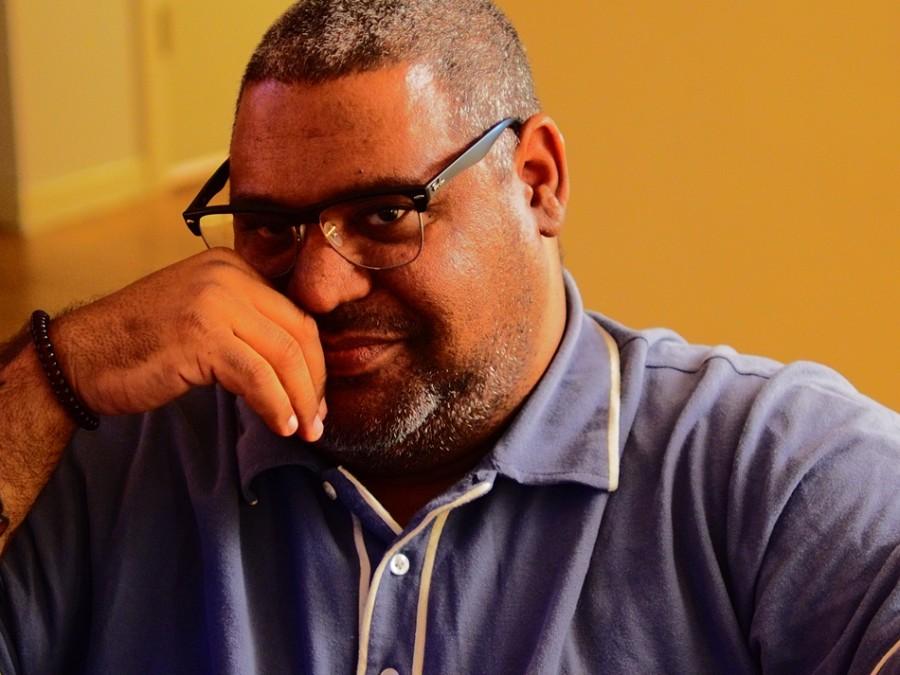Writer, English Prof Chris Abani receives national arts fellowship
English Prof. Chris Abani has received a United States Artists Ford Fellowship, which includes an unrestricted $50,000 grant. Abani, who has been publishing his writing since he was 10, said he wants to bridge the gap between academics and writers.
November 9, 2014
English Prof. Chris Abani has always been a writer.
“I published my first short story at 10 and my first novel at 16, so I kind of have always done it my whole life,” he said. “There’s never really been a time when I haven’t been a writer.”
Abani, an internationally acclaimed novelist and poet, received the United States Artist 2014 Ford Fellowship for literature last month. He is one of 32 artists from eight different disciplines — literature, media, architecture and design, crafts and traditional arts, theater, music, visual arts and dance — chosen to receive the fellowship, which comes with a $50,000 unrestricted grant.
A native of Afikpo, Nigeria, Abani has lived in the United States since 2001 and joined Northwestern’s English department as a professor of creative writing and literature in the fall of 2013.
His first novel “Masters of the Board,” a political thriller about a former Nazi’s attempt to seize power in Nigeria, became the subject of a conspiracy by the Nigerian government. Abani served six months in jail under the false charge that he provided a plan for a coup that occurred just a few months after the novel’s publication.
That was the first of three incidents in which Abani was imprisoned for his work. He said these events became fodder for his later writing.
“My work is against forgetting,” he said. “I often go into stories that people want to forget because they’re too difficult or they cause shame.”
About a year ago, Abani received an email from the United States Artists saying that he had been nominated for the Ford Fellowship. He accepted the nomination and didn’t hear the results until mid-October.
“I had completely forgotten I’d even given them that information, so it was a beautiful surprise when they called me to say I had won it,” Abani said. “I haven’t decided yet what the project is going to be, but it may provide money for research or for collaborations because I like to work interdisciplinary.”
English Prof. Mary Kinzie, director of the writing major, praised Abani’s teaching style and skill.
“This award only serves to increase the already high esteem in which he is held by everyone who knows him and his work here at Northwestern,” Kinzie said.
Abani said his focus on the interdisciplinary defines his role at NU as both a creative writer and an academic.
“I think in a way part of my role is to bridge the gap between scholars and writers, between the critical and the creative and to foster more interesting work environments and research and the exciting projects that can come out of that,” Abani said. “This is something the English department is really invested in, which is a wonderful thing.”
Communication senior Hallye Webb, who took Abani’s advanced creative writing class Spring Quarter 2014, called his class one of her most challenging and rewarding experiences at NU. The class, “The Long Story,” required students to write 25- to 30-page novellas.
“Professor Abani was so honest — sometimes brutally honest — about your writing, but when he gave you a compliment you knew that he meant it,” she said. “He can be this really imposing and scary guy because he’s so honest and demanding in a lot of ways, but he’s also so compassionate and supportive.”
Email: [email protected]
Twitter: @marissahpage


